Recombinant Human Loricrin (LOR)
-
货号:CSB-YP013037HU
-
规格:
-
来源:Yeast
-
其他:
-
货号:CSB-EP013037HU
-
规格:
-
来源:E.coli
-
其他:
-
货号:CSB-EP013037HU-B
-
规格:
-
来源:E.coli
-
共轭:Avi-tag Biotinylated
E. coli biotin ligase (BirA) is highly specific in covalently attaching biotin to the 15 amino acid AviTag peptide. This recombinant protein was biotinylated in vivo by AviTag-BirA technology, which method is BriA catalyzes amide linkage between the biotin and the specific lysine of the AviTag.
-
其他:
-
货号:CSB-BP013037HU
-
规格:
-
来源:Baculovirus
-
其他:
-
货号:CSB-MP013037HU
-
规格:
-
来源:Mammalian cell
-
其他:
产品详情
-
纯度:>85% (SDS-PAGE)
-
基因名:LOR
-
Uniprot No.:
-
别名:LOR; LOR protein; LORI_HUMAN; Loricrin; LRN; MGC111513; OTTHUMP00000015823
-
种属:Homo sapiens (Human)
-
蛋白长度:Full length
-
表达区域:1-312aa
-
氨基酸序列MSYQKKQPTPQPPVDCVKTSGGGGGGGGSGGGGCGFFGGGGSGGGSSGSGCGYSGGGGYSGGGCGGGSSGGGGGGGIGGCGGGSGGSVKYSGGGGSSGGGSGCFSSGGGGSGCFSSGGGGSSGGGSGCFSSGGGGSSGGGSGCFSSGGGGFSGQAVQCQSYGGVSSGGSSGGGSGCFSSGGGGGSVCGYSGGGSGCGGGSSGGSGSGYVSSQQVTQTSCAPQPSYGGGSSGGGGSGGSGCFSSGGGGGSSGCGGGSSGIGSGCIISGGGSVCGGGSSGGGGGGSSVGGSGSGKGVPICHQTQQKQAPTWPSK
-
蛋白标签:Tag type will be determined during the manufacturing process.
The tag type will be determined during production process. If you have specified tag type, please tell us and we will develop the specified tag preferentially. -
产品提供形式:Lyophilized powder
Note: We will preferentially ship the format that we have in stock, however, if you have any special requirement for the format, please remark your requirement when placing the order, we will prepare according to your demand. -
复溶:We recommend that this vial be briefly centrifuged prior to opening to bring the contents to the bottom. Please reconstitute protein in deionized sterile water to a concentration of 0.1-1.0 mg/mL.We recommend to add 5-50% of glycerol (final concentration) and aliquot for long-term storage at -20℃/-80℃. Our default final concentration of glycerol is 50%. Customers could use it as reference.
-
储存条件:Store at -20°C/-80°C upon receipt, aliquoting is necessary for mutiple use. Avoid repeated freeze-thaw cycles.
-
保质期:The shelf life is related to many factors, storage state, buffer ingredients, storage temperature and the stability of the protein itself.
Generally, the shelf life of liquid form is 6 months at -20°C/-80°C. The shelf life of lyophilized form is 12 months at -20°C/-80°C. -
货期:Delivery time may differ from different purchasing way or location, please kindly consult your local distributors for specific delivery time.Note: All of our proteins are default shipped with normal blue ice packs, if you request to ship with dry ice, please communicate with us in advance and extra fees will be charged.
-
注意事项:Repeated freezing and thawing is not recommended. Store working aliquots at 4°C for up to one week.
-
Datasheet :Please contact us to get it.
相关产品
靶点详情
-
功能:Major keratinocyte cell envelope protein.
-
基因功能参考文献:
- s report a multi-generation family with prominent ichthyosis and palmoplantar involvement due to a novel mutation in loricrin. PMID: 25965869
- Letter: Knockdown of either filaggrin or loricrin increases the productions of interleukin (IL)-1alpha, IL-8, IL-18 and granulocyte macrophage colony-stimulating factor in stratified human keratinocytes. PMID: 26381575
- Studies on human keratinocytes recognized that loricrin expression was inversely related to the expression of the cyclin-dependent kinase inhibitor p21 PMID: 25896246
- two novel heterozygous frameshift mutations in exon 2 - c.646_647insGCAGCAGGTC, p.Gln216Argfs*123 and c.798_799dupT, p.Gly267Trpfs*69 in loricrin keratoderma patients PMID: 25234742
- Results describe a novel frameshift mutation leading to loricrin keratoderma presenting with colloidion membrane PMID: 25142840
- We found no mutations of Loricrin in two Progressive symmetrical erythrokeratoderma families. PMID: 23678955
- We describe a young man who was a collodion baby and had the typical presentation of Loricrin keratoderma. Direct DNA sequencing identified a heterozygous mutation in the loricrin gene with a single G insertion, 730insG, present in (a) the patient PMID: 22831754
- There were no mutations found in the LOR gene and the true pathogenesis of progressive symmetrical erythrokeratodermia remains unknown. PMID: 21198793
- These findings suggest that inverse effects of PKCdelta and PKCeta on loricrin expression attributes to the expression of c-Jun and JunD. PMID: 20184865
- regulation of gene expression requires interactions among multiple transcription factors in keratinocytes located in different compartments of the epidermis PMID: 12200429
- Unique mutations in glycine-rich domain of mutant loricrin form arginine-rich nuclear localization sequences that disrupt differentiation of keratinocytes. PMID: 12615358
- Barrier abnormality in loricrin keratoderma is linked to defective CE scaffold, resulting in increased extracellular permeability. PMID: 15102081
- ruled out as a candidate for the PSORS4 locus. PMID: 15598222
- report the clinical and molecular characterization of a new family with the recurrent 730insG LOR mutation, giving new insights in LK genotype-phenotype correlation PMID: 17953701
- results give evidence that heterogeneous phenotypes of LK may be the result of genetic heterogeneity of loricrin mutations, and demonstrate that nuclear accumulation of mutant loricrin is due to the nuclear targeting sequences in the mutant C-terminus. PMID: 18844868
- the deregulated increase in SPRR1A expression in chronic atopic skin lesions reflects an insufficient rise in SPRR transcripts, unable to compensate for the lack of LOR and thus contributing to the persistence of chronic atopic dermatitis skin lesions. PMID: 19672094
显示更多
收起更多
-
相关疾病:Vohwinkel syndrome with ichthyosis (VSI)
-
亚细胞定位:Cytoplasm. Nucleus, nucleoplasm.
-
数据库链接:
HGNC: 6663
OMIM: 152445
KEGG: hsa:4014
STRING: 9606.ENSP00000357731
UniGene: Hs.251680
Most popular with customers
-
Recombinant Human T-cell immunoreceptor with Ig and ITIM domains (TIGIT), partial (Active)
Express system: Mammalian cell
Species: Homo sapiens (Human)
-
Recombinant Human Pro-neuregulin-1, membrane-bound isoform (NRG1), partial (Active)
Express system: Mammalian cell
Species: Homo sapiens (Human)
-
Recombinant Human G-protein coupled receptor family C group 5 member D (GPRC5D)-VLPs (Active)
Express system: Mammalian cell
Species: Homo sapiens (Human)
-
Recombinant Macaca mulatta Semaphorin-4D isoform 1 (SEMA4D), partial (Active)
Express system: Mammalian cell
Species: Macaca mulatta (Rhesus macaque)
-
Recombinant Rat Intestinal-type alkaline phosphatase 1 (Alpi) (Active)
Express system: Mammalian cell
Species: Rattus norvegicus (Rat)
-
Recombinant Mouse Transthyretin (Ttr) (Active)
Express system: Mammalian cell
Species: Mus musculus (Mouse)
-
Express system: Mammalian cell
Species: Macaca fascicularis (Crab-eating macaque) (Cynomolgus monkey)
-
Recombinant Human Microtubule-associated protein tau (MAPT) (Active)
Express system: Mammalian cell
Species: Homo sapiens (Human)


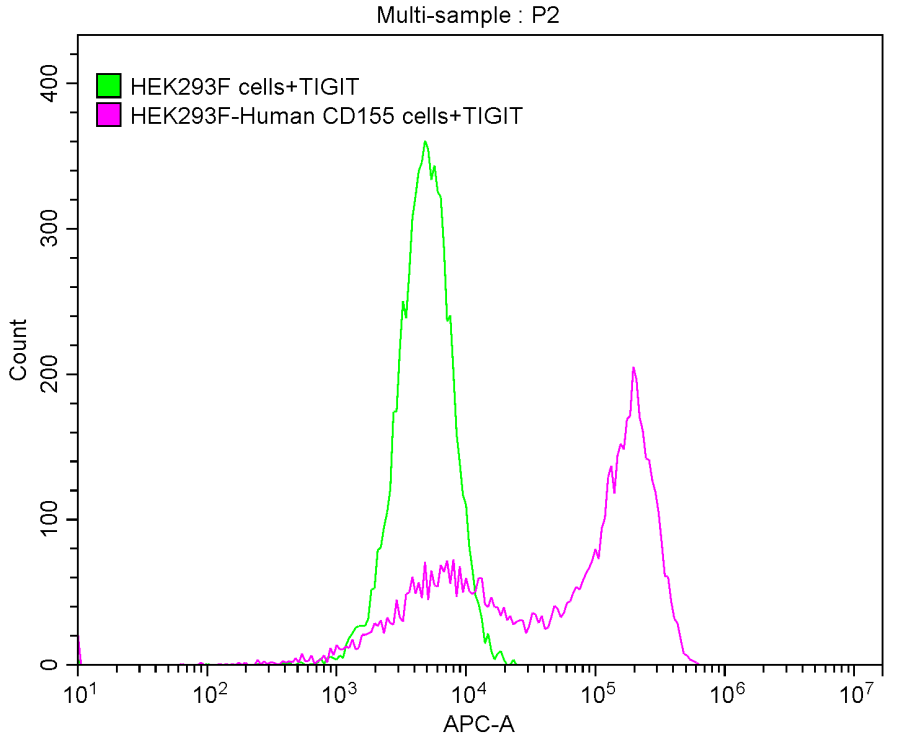
-AC1.jpg)
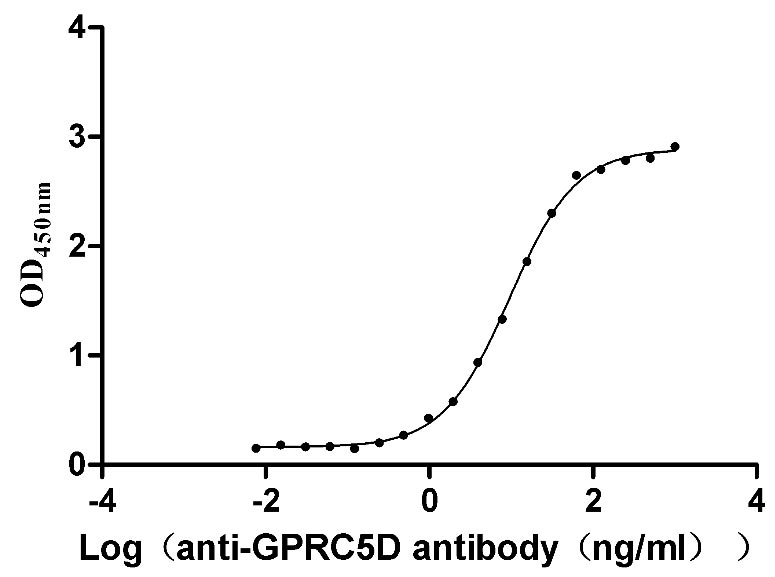
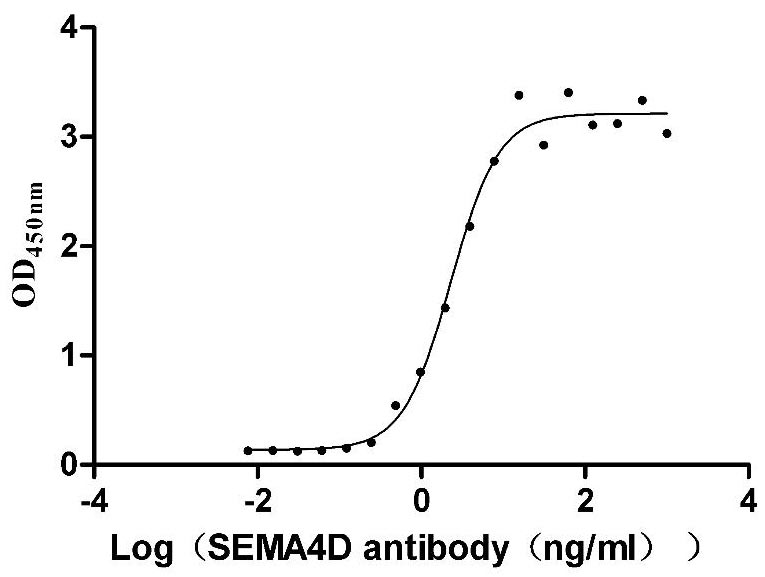

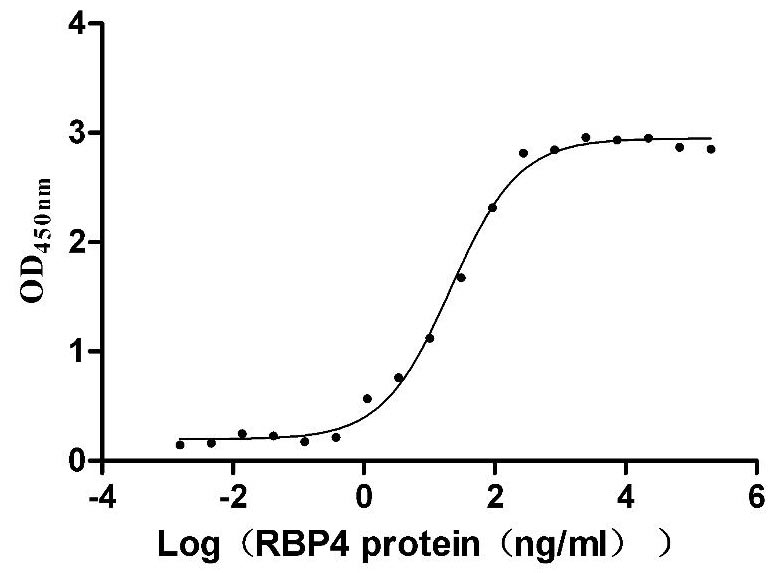
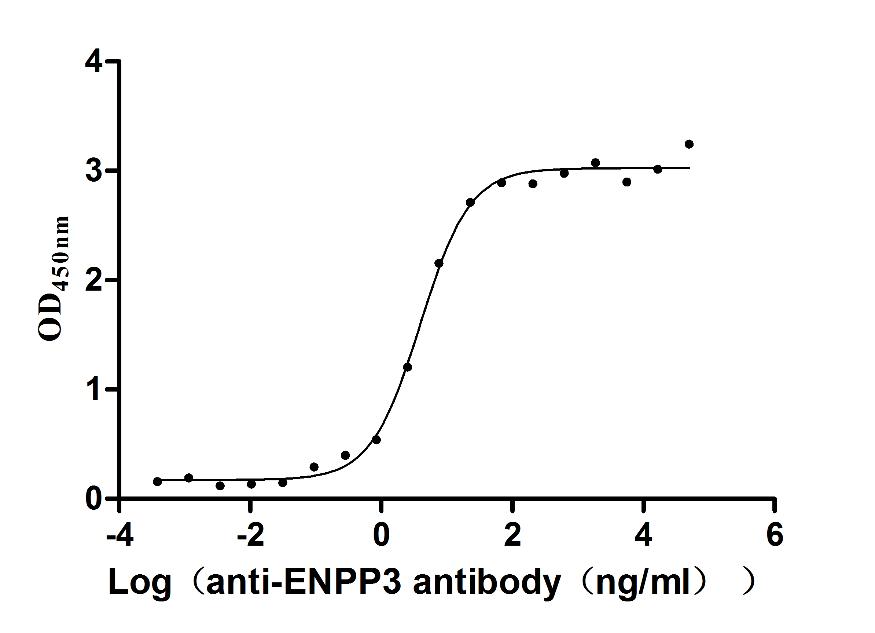
-AC1.jpg)










